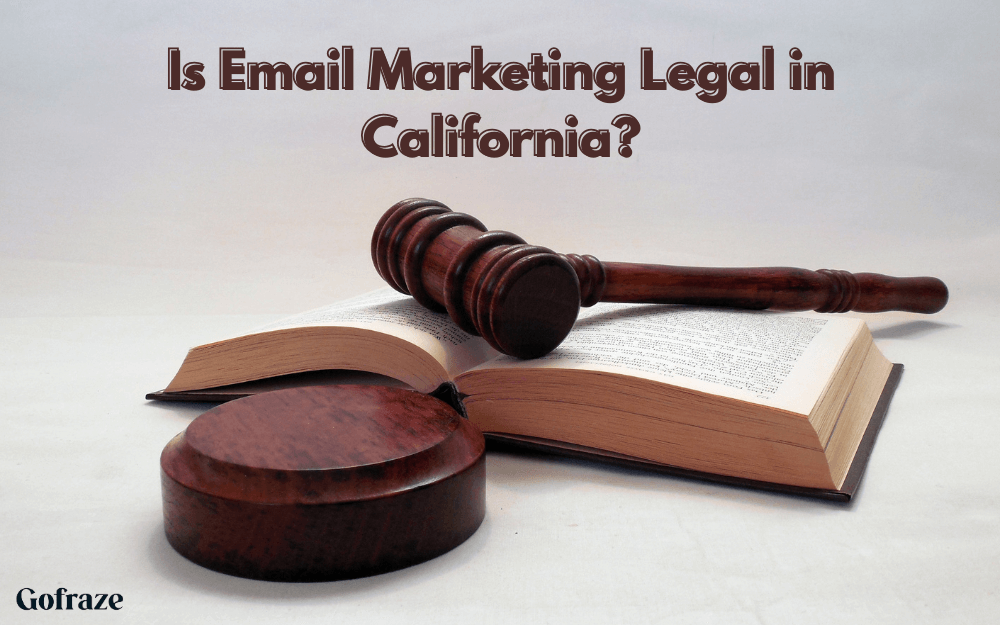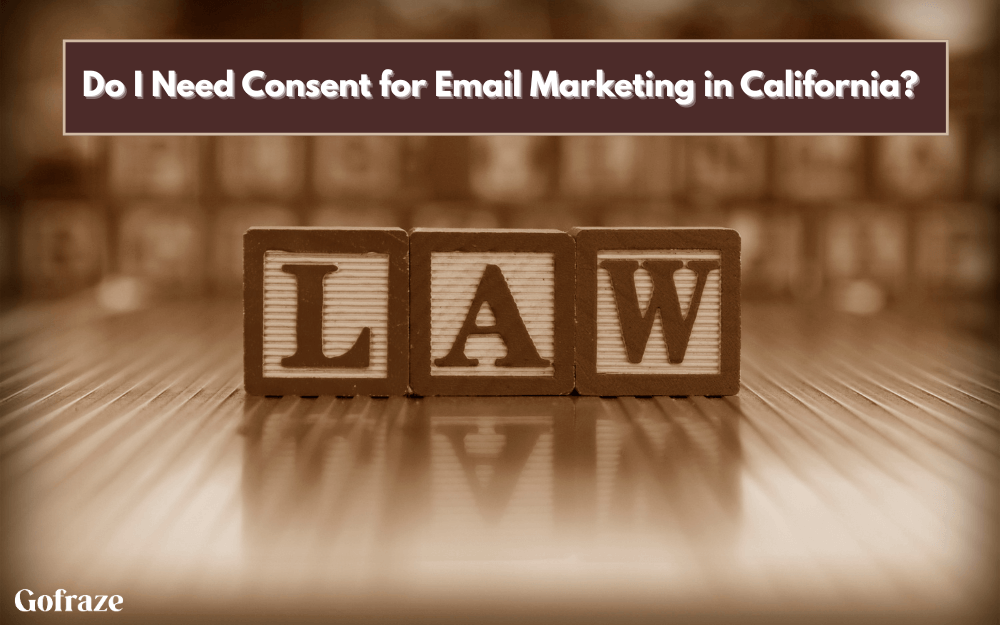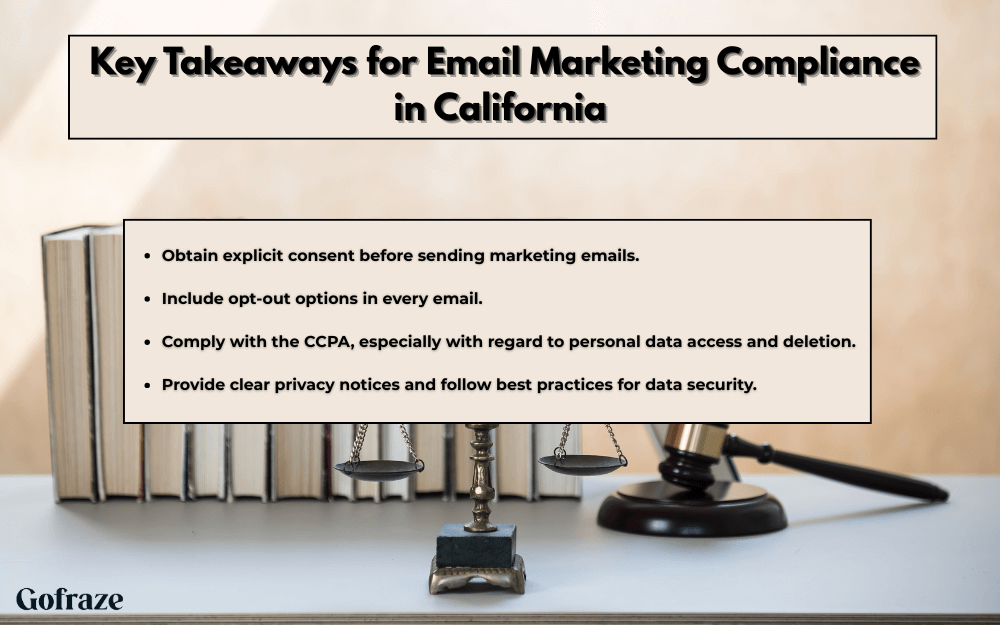Email Marketing for Car Dealerships: Strategies, Ideas & Best Practices
Explore powerful email marketing strategies for car dealerships. Learn to attract, engage, and convert leads into loyal customers with ease.
Email marketing is a powerful tool for businesses to communicate with their audience. Still, it’s essential to understand the legal landscape, especially in California, where consumer protection laws are more stringent than in many other states. This guide will break down the legal requirements, including California Email Marketing Laws, such as the California Consumer Privacy Act (CCPA) and the CAN-SPAM Act, among others.
Definition and Purpose: Email marketing refers to the practice of sending commercial messages to a group of people via email. These messages can include promotional content, newsletters, transactional messages, or any communication designed to inform or persuade recipients. The main goal is to build relationships, generate sales, or provide valuable content to your audience.
Common Types of Email Marketing Campaigns:
Building an Email List: One of the foundational aspects of email marketing is building a high-quality email list. The process typically includes collecting email addresses through opt-in forms on websites, social media platforms, and landing pages. In California, however, obtaining consent for marketing emails is crucial for compliance.
Email Campaign Tools and Automation: Email marketing platforms like Mailchimp, HubSpot, and ActiveCampaign offer tools for automating campaigns, segmenting your audience, and analyzing the effectiveness of your efforts. These tools help streamline processes such as sending welcome emails, cart abandonment reminders, and personalized content.
Tracking and Analytics: Tracking the performance of your campaigns is critical for improving results. Email analytics tools track metrics such as open rates, click-through rates, bounce rates, and conversions. In California, tracking user engagement must comply with privacy laws like the CCPA.

Overview of U.S. and California Laws: Email marketing is legal in the U.S., but there are strict laws that regulate how businesses collect data and communicate with consumers. California, in particular, has implemented stringent consumer protection laws, including the California Consumer Privacy Act (CCPA) and additional state-level requirements that govern email marketing practices.
General Compliance Requirements: To stay compliant in California, businesses must follow both federal and state laws:
You May Also like: 7 Lawyer Email Marketing Tips for Winning Customers
CAN-SPAM Act Guidelines: The CAN-SPAM Act is a federal law that governs unsolicited email marketing. While it allows businesses to send promotional emails, it sets clear rules:
California-Specific Requirements: California has additional requirements beyond the CAN-SPAM Act. Businesses sending unsolicited emails must ensure they are compliant with the CCPA and the state’s more stringent privacy protection laws.

When Is Consent Required? In California, consent is required before sending marketing emails. This means businesses must:
How to Legally Obtain Consent:

Cost-Effectiveness: Email marketing is one of the most cost-effective marketing strategies. It requires relatively low investment compared to other forms of advertising, such as print or TV ads, while offering high returns.
High ROI and Engagement: Studies consistently show that email marketing provides an impressive return on investment (ROI), often much higher than other forms of marketing. The direct nature of email allows for personalized engagement with recipients, leading to higher conversion rates.
Audience Personalization: With email marketing, businesses can segment their audience and send highly personalized content based on user behavior, preferences, and demographics. Personalization leads to better customer relationships and increased loyalty.
Key Provisions of the CAN-SPAM Act:
Penalties for Non-Compliance: Failure to comply with the CAN-SPAM Act can result in penalties of up to $43,280 per violation, which can add up quickly if you’re sending mass emails.
How to Stay Compliant:
What Is Express Consent? Express consent is when a person explicitly agrees to receive marketing emails. This is typically done by opting into an email list by filling out a form or clicking a confirmation link.
What Is Implied Consent? Implied consent occurs when a person engages with a business in a way that suggests they are open to receiving marketing emails. For example, if someone subscribes to a blog, their consent to receive related promotional content can be implied.
Best Practices for Verifiable Consent:
Overview of the CCPA: The CCPA is a California state law that enhances privacy rights for residents of the state. It grants consumers the right to access, delete, and opt out of the sale of their personal data.
Who Must Comply? Businesses that meet one or more of the following criteria must comply with the CCPA:
Consumer Rights Under CCPA:
Right to Opt-Out: Under the CCPA, recipients must be given a clear option to opt-out of marketing emails. If personal data is being sold, businesses must provide an easy way for recipients to opt-out.
Privacy Notices and Disclosures: Businesses must include a privacy notice explaining how personal data will be collected, used, and shared in email communications.
Data Access and Deletion Requests: Consumers have the right to request a copy of the personal data a business has collected about them, as well as the right to delete their data.
What “Sale of Data” Means: The “sale of data” refers to any exchange of personal data for monetary gain. Even if the data isn’t directly sold, sharing it with third parties for marketing purposes may be considered a sale under the CCPA.
Implementing a “Do Not Sell” Link: Businesses must provide a “Do Not Sell My Info” link on their website and in their emails, allowing recipients to opt-out of data sharing.
Implications for Email List Sharing or Selling: If you plan to share or sell email list data to third parties, you must comply with the CCPA’s requirements. Failure to do so could lead to fines and legal action.
Examples of Personal Data Under CCPA:
How Email Identifiers Are Classified
Email addresses are considered personal information under the CCPA, and must be treated with care, especially in marketing campaigns.
Handling Personal Information Securely
Ensure all personal data is stored securely and only used for the purposes it was collected for. Consider encrypting sensitive data and using secure email systems to protect recipient information.
Learn how to follow CCPA regulations, get consent the right way, and build powerful, legal email campaigns with Gofraze’s smart solutions.

Summary of Legal Requirements:
Consent & Privacy Checklist:
Staying Updated with Changing Regulations
California’s privacy laws are evolving, so it’s essential to stay informed about new regulations and adapt your email marketing practices accordingly.

Explore powerful email marketing strategies for car dealerships. Learn to attract, engage, and convert leads into loyal customers with ease.

Learn how to craft the perfect webinar invitation email using key tips, templates, and examples to boost sign-ups and engagement.

Discover winning sports newsletter examples, essential elements, and expert tips to craft high-impact email campaigns your fans will love.

Get unlimited forms that turn your traffic into real subscribers — totally free
Start now - free forever